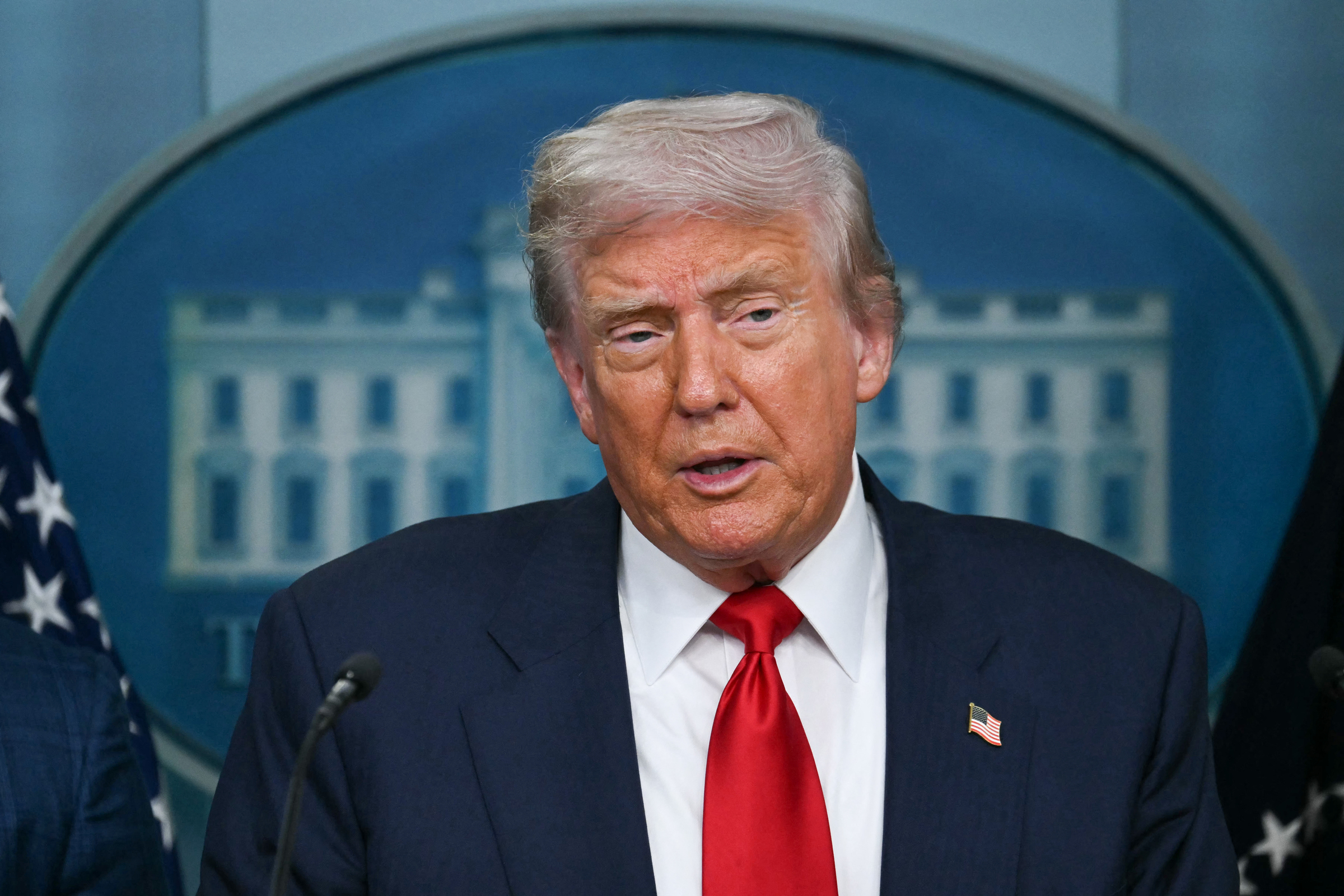In mid-August, data from the US Bureau of Labor Statistics revealed a 5.5% increase in electricity prices over the past 12 months, double the rate of inflation. Meanwhile, gasoline and heating oil prices decreased by 9.5% and 2.9%, respectively, during the same period.
Reacting to this news on Truth Social on 20/8, former President Trump blamed renewable energy sources, specifically wind and solar, for the rising electricity costs.
He labeled these sources "the scam of the century" and pledged not to approve any wind or "farmer-destroying solar" projects. "The era of American stupidity is over!!!", he declared. During his 2024 campaign, he promised to halve Americans' electricity bills.
 |
Former President Donald Trump at a White House press conference on 11/8. Photo: AFP |
Former President Donald Trump at a White House press conference on 11/8. Photo: AFP
Analysts disagree with Trump's assessment. They attribute the recent electricity price increases to factors like higher demand, aging infrastructure, and increasingly severe weather events, such as droughts causing wildfires.
The rapid growth of cloud computing and artificial intelligence has significantly increased electricity consumption in data centers. The rise of electric vehicles also plays a role. Additionally, natural gas prices, which fuel over 40% of US electricity generation, are rising due to exports to Europe and other countries.
The Solar Energy Industries Association (SEIA) responded to Trump's post, stating that "the real scam is blaming solar." "Farmers, families, and businesses choose solar to save money, protect their land, and avoid the high prices of the dirty, old fuels this administration is forcing them to use," the association added.
Democrats went further, blaming Trump for the rising prices, citing his administration's "Beautiful Act" and its additional regulations targeting wind and solar energy as obstacles to clean energy development.
"We need more energy to meet growing demand and ensure grid reliability. Instead of increasing supply, Trump is crushing the clean energy sector, destroying jobs and projects," stated Senator Martin Heinrich, a senior member of the Senate Energy and Natural Resources Committee.
A report from the research organization Energy Innovation predicts that the "Beautiful Act" will increase the average household electricity bill by USD 130 annually by 2030. The report argues that the rapid elimination of clean energy incentives and the addition of complex sourcing requirements will "severely weaken the development of domestic electricity generation capacity."
John Quigley, a senior research fellow at the University of Pennsylvania's Kleinman Center for Energy Policy, believes the new law is increasing electricity prices by slowing the construction of solar, wind, and battery storage projects, and could lead to the loss of up to 45,000 jobs by 2030.
According to Quigley, the policy's emphasis on fossil fuels is extremely backward. "In addition to ceding the clean energy future to other countries, we are paying for this 'fossil folly' not only with money but also with our health and safety. And our children will pay an even higher price," he warned.
Over 90% of the new energy capacity added in the US in 2024 was clean energy, according to Jason Grumet, CEO of the American Clean Power Association. With technological advancements, wind and solar are becoming the cheapest and fastest ways to generate electricity.
Data from the US Energy Information Administration shows that states with the highest percentage of clean energy production have seen electricity prices decrease in the past year, while prices have increased in states with less renewable energy. "By slowing the deployment of clean energy, the Trump administration is directly driving up prices," Grumet said.
In response to the criticism, Energy Secretary Chris Wright attributed the escalating prices to the "momentum" of policies from President Joe Biden's administration, which prioritized renewable energy over fossil fuels like oil, coal, and natural gas. "That momentum is driving up prices now. And who gets blamed? We do, because we're in charge," he commented.
Phien An (according to AP)












